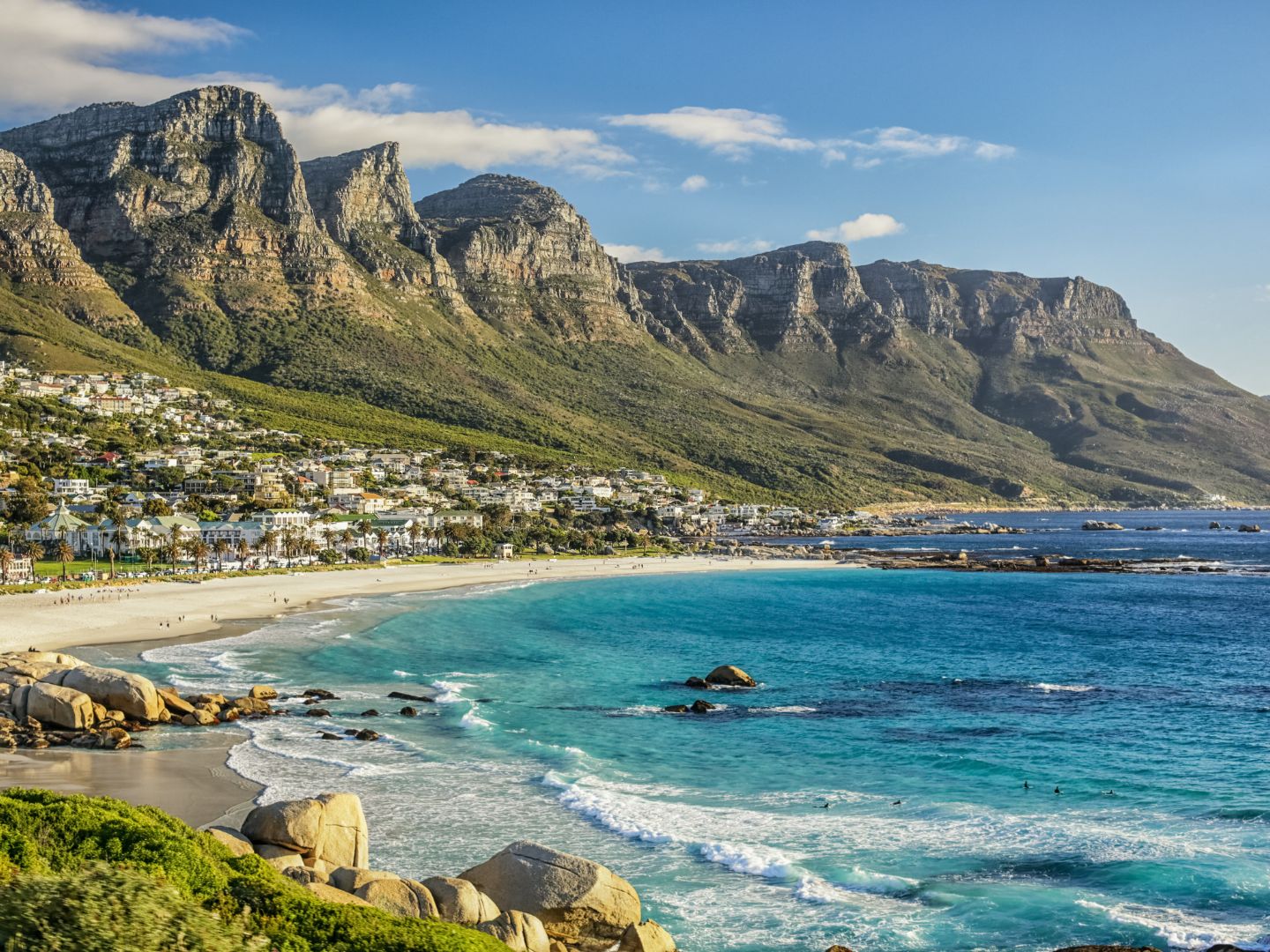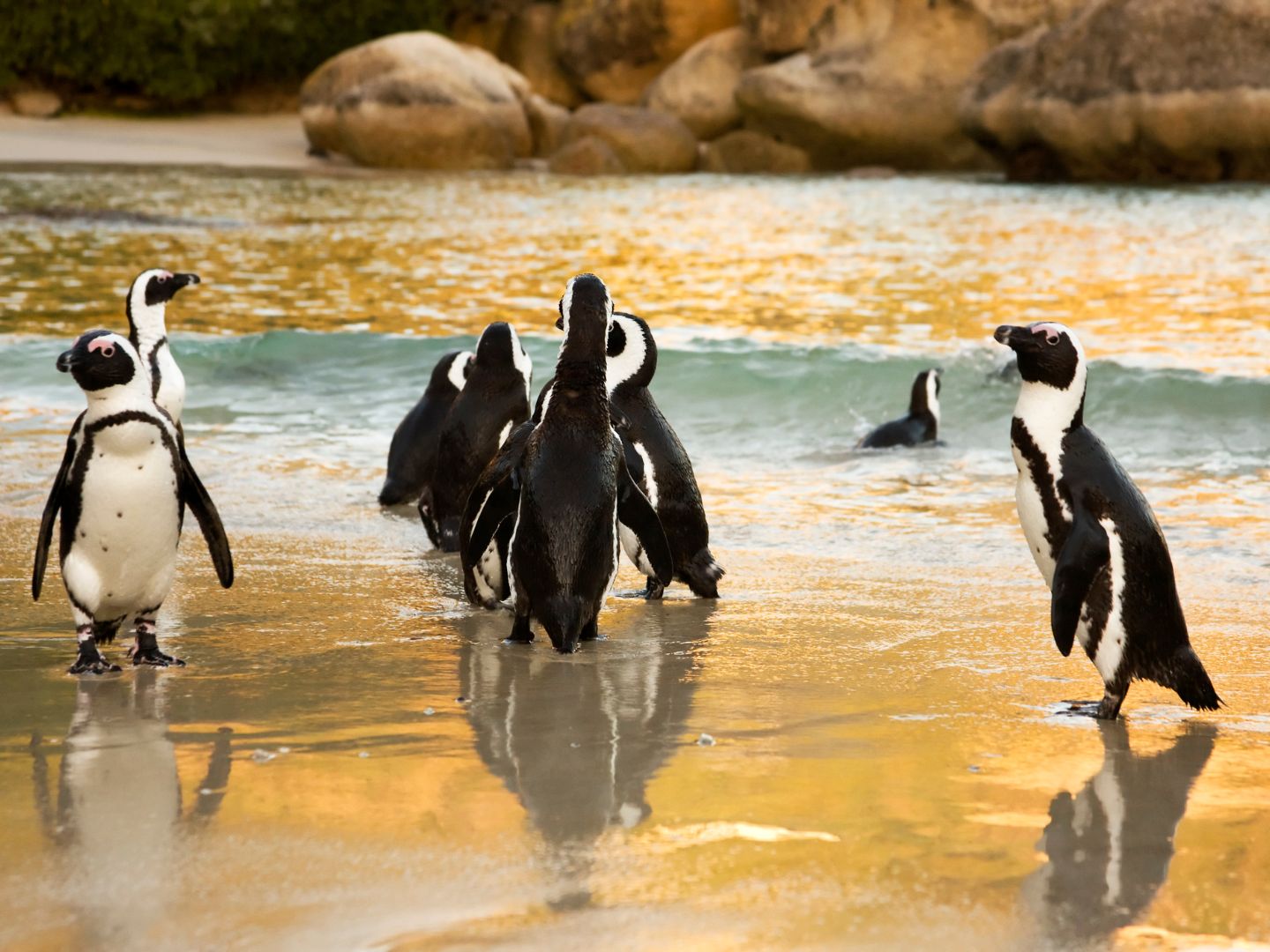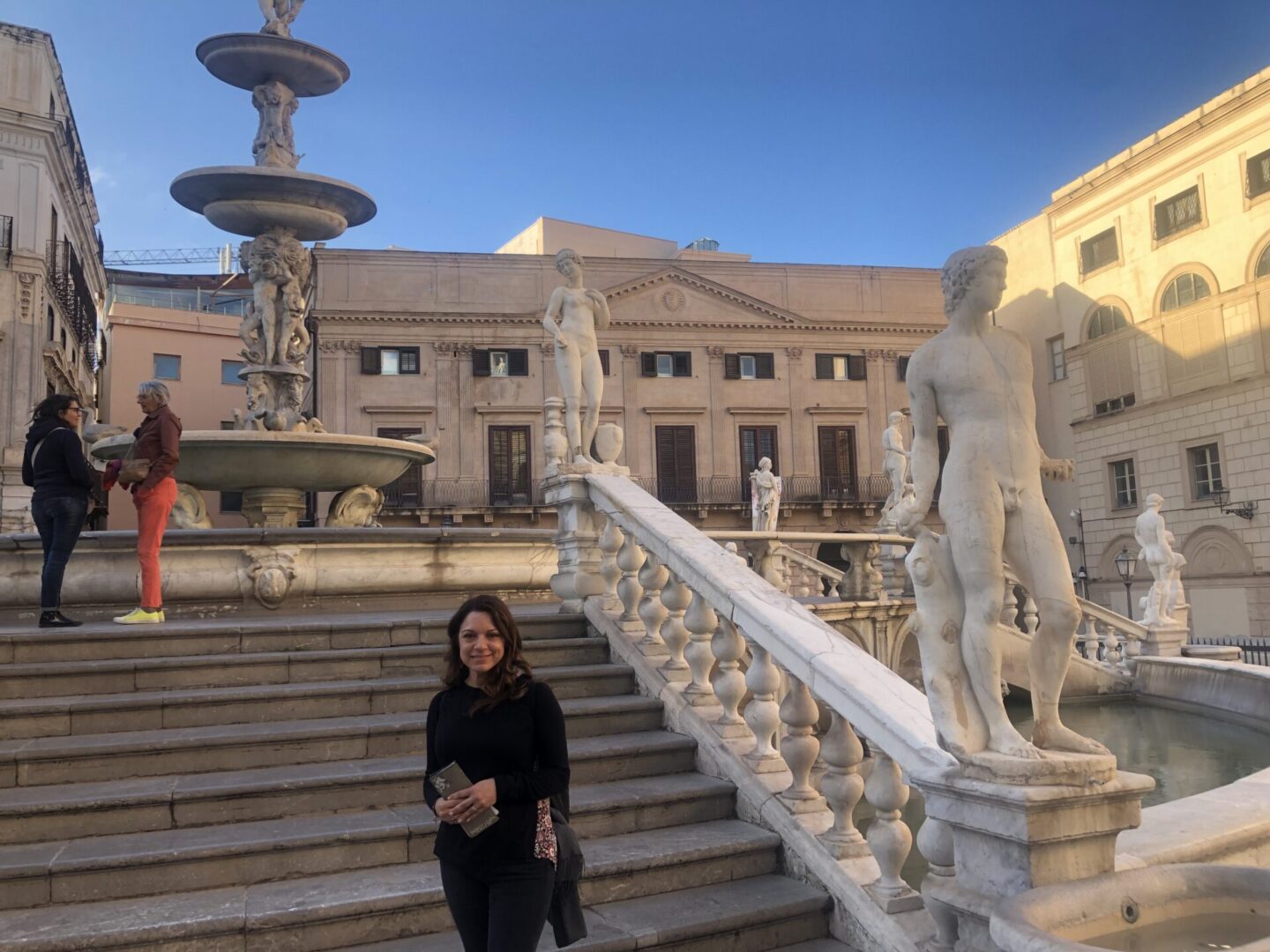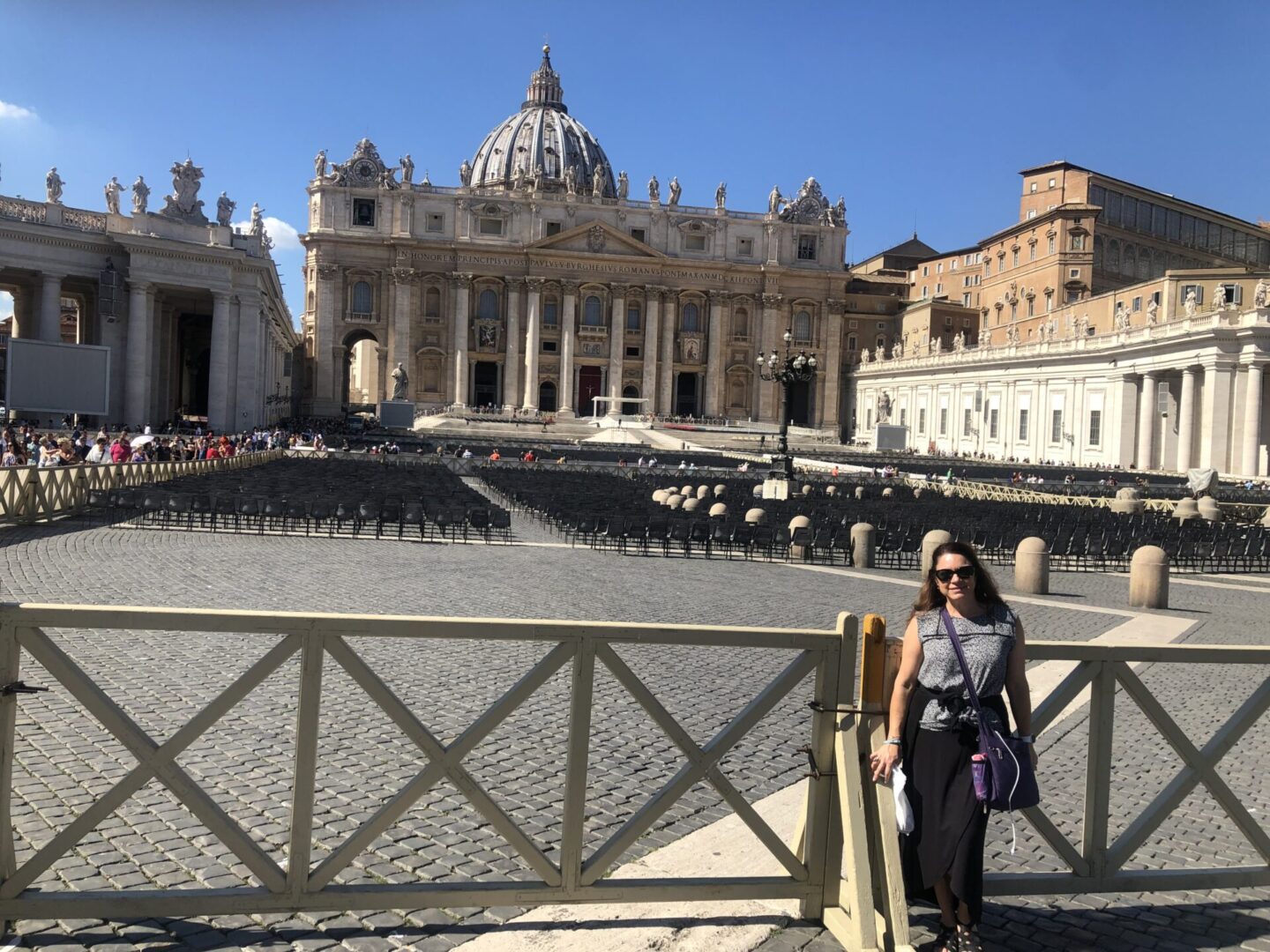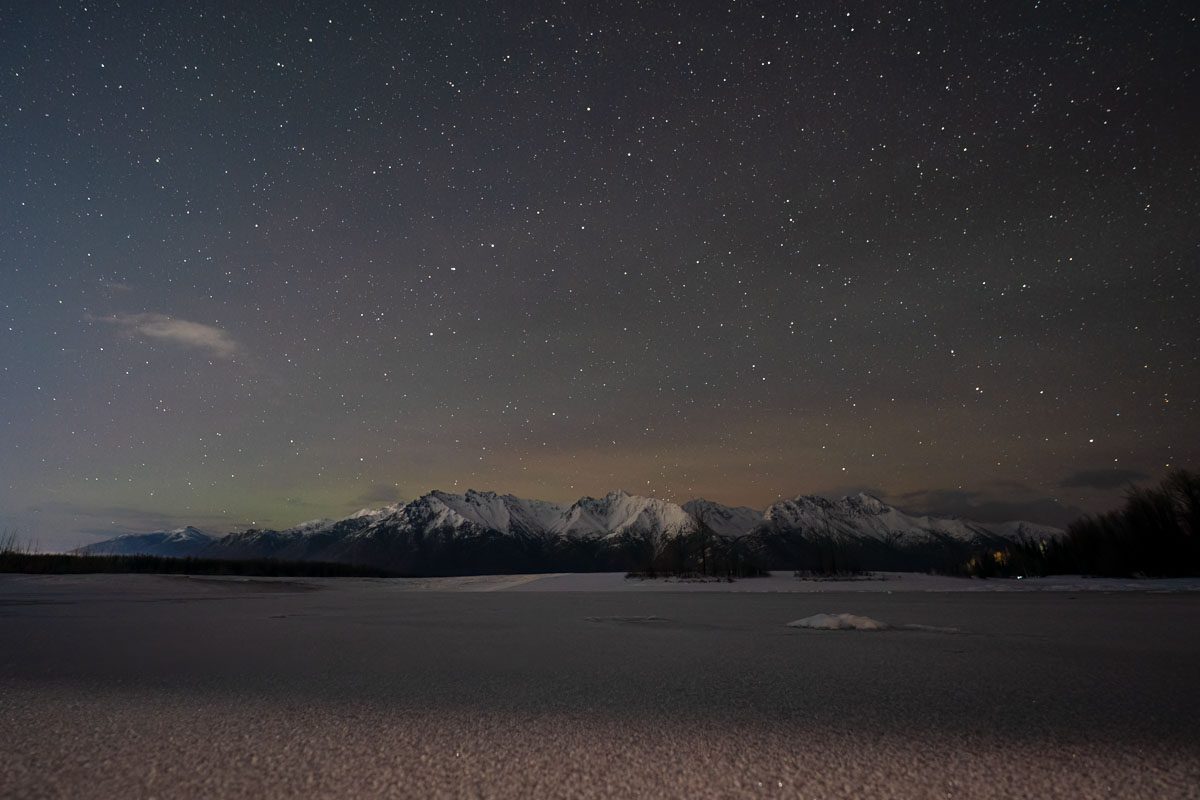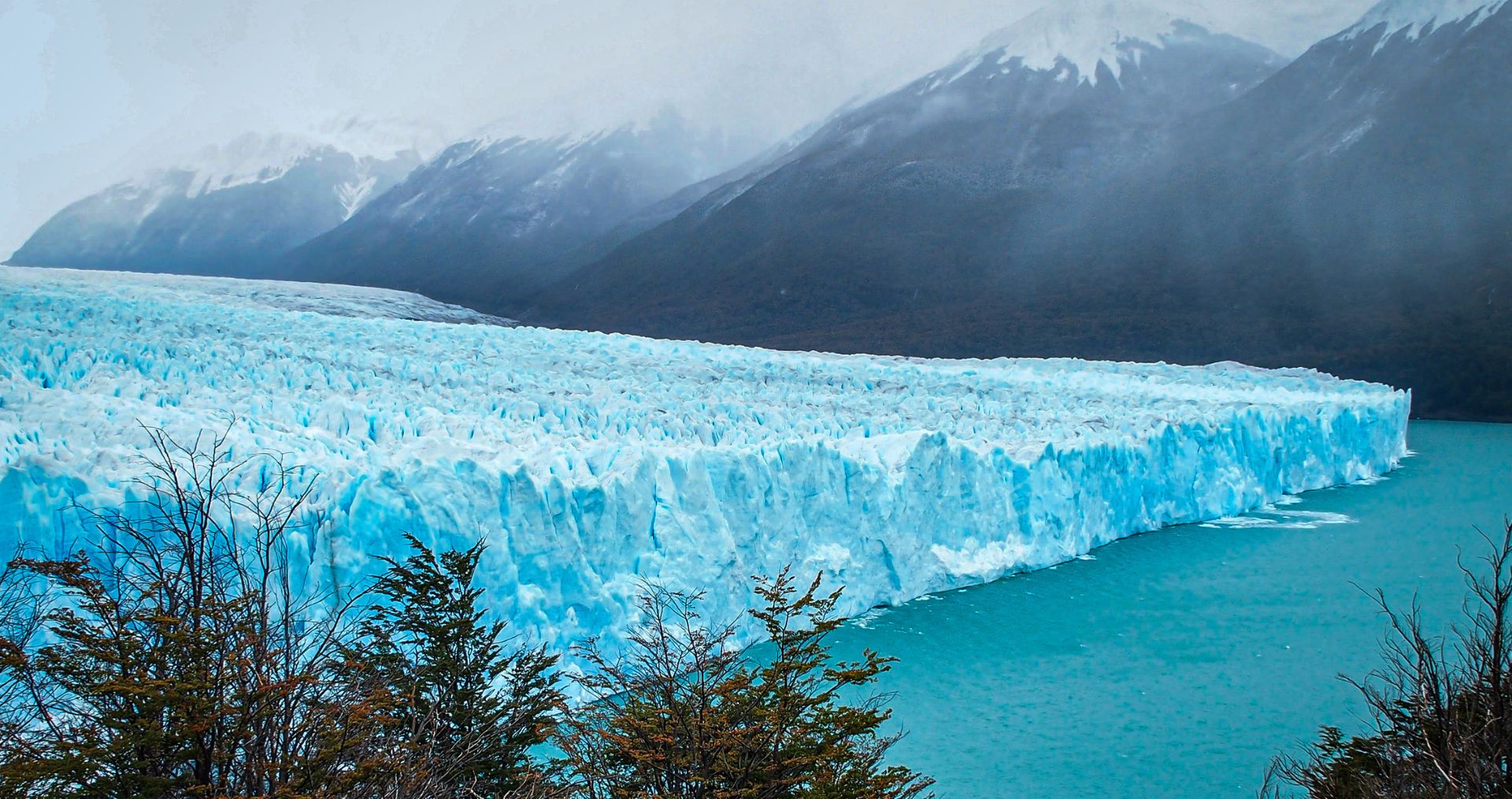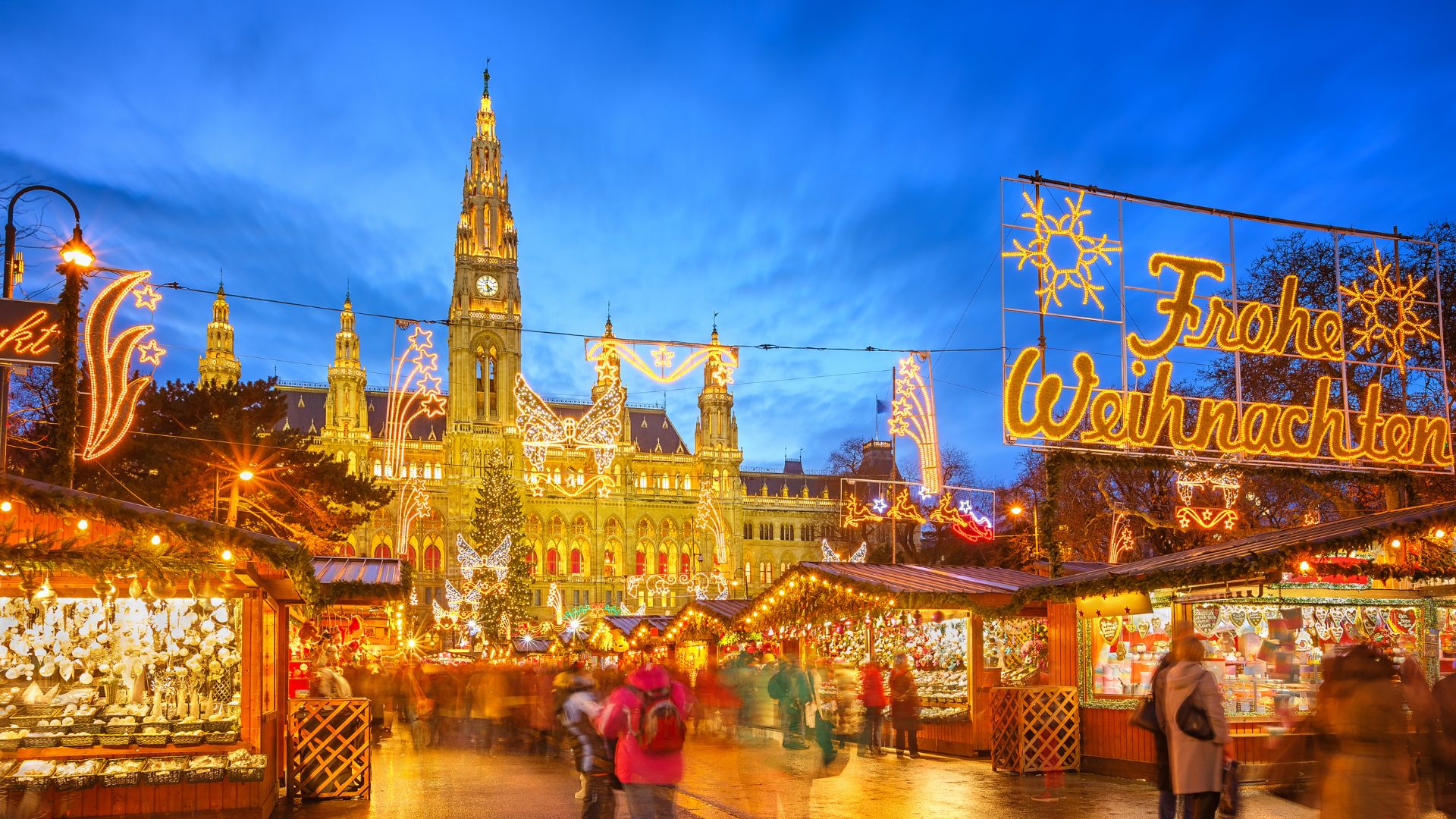There’s something magnetic about Cape Town. Perhaps it’s the way Table Mountain stands sentinel over the city, or how the Atlantic crashes against the shores of Camp’s Bay while penguins waddle along Boulders Beach just a short drive away. Maybe it’s the complex history that pulses through its streets, or the way South African, Dutch, British, Malaysian, and indigenous influences have melded into something entirely unique.
Africa’s Cape Town – A City Cradled by Nature
Cape Town might be the only major city where you can spend your morning hiking a mountain, your afternoon spotting whales from coastal cliffs, and your evening savoring world-class cuisine on a historic waterfront. This isn’t your typical urban experience – its nature and civilization engaging in a beautiful dance.
Table Mountain: Most cities have skylines; Cape Town has a flat-topped mountain that changes personality with every shift in weather. The more ambitious can hike up one of several trails (Platteklip Gorge being the most direct, while Skeleton Gorge offers lush forest scenery), but the cable car provides equally spectacular views without the sweat.
Tip: Purchase tickets online beforehand to avoid queues, and go early in the morning – when the infamous “tablecloth” cloud covers the mountain, the cable car stops running. If you’re hiking, never go alone and always check weather forecasts; conditions can change rapidly.
Cape Point and the Cape of Good Hope: Standing at what feels like the edge of the world, where two oceans theoretically meet (though oceanographers might disagree), is a humbling experience. The drive along Chapman’s Peak to get there ranks among the world’s most scenic coastal roads. Watch for baboons, they’re crafty and will steal your lunch if given half a chance. Visit during spring (September-November) when wildflowers carpet the landscape in a riot of colors.
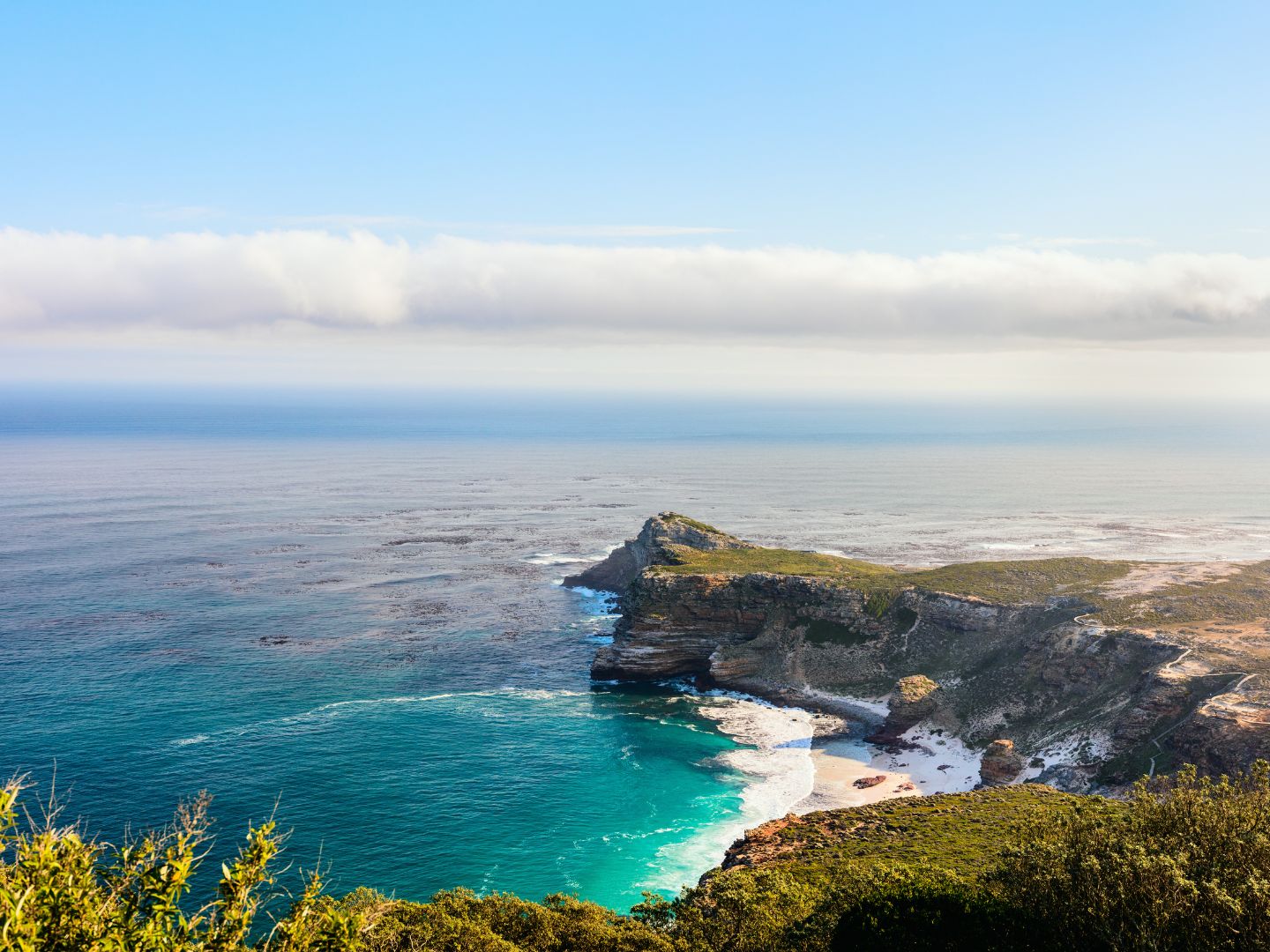
Boulders Beach: How often can you swim alongside African penguins? These tuxedoed locals have claimed this sheltered beach as their own, and the wooden boardwalks allow for close-up encounters without disturbing their habitat. The water’s quite chilly even in summer – brace yourself if you decide to take a dip!
Cultural Threads And Historical Echoes
Cape Town’s beauty isn’t limited to its natural setting – its complex history has created neighborhoods and traditions unlike anywhere else.
Bo-Kaap: This neighborhood’s rainbow-colored houses tell a story of resilience. Originally home to freed slaves and political exiles from Dutch colonies, its vibrant Muslim community has preserved their culture despite centuries of challenges. Join a cooking class to learn about Cape Malay cuisine – a unique fusion born from the spice routes and local ingredients. The samosas here will ruin all others for you forever.
Robben Island: A 30-minute ferry ride takes you to where Nelson Mandela spent 18 of his 27 years in prison. Former political prisoners often serve as guides, offering first-hand accounts that history books simply cannot match. Book tickets at least a week in advance, especially in high season (December-February).
District Six Museum: Before wandering through this powerful museum, understand that you’re walking through a wound still healing. The forced removals that destroyed this once-vibrant multicultural community under apartheid left scars that continue to shape Cape Town today. Small and intimate, the museum tells personal stories rather than just historical facts.
The Flavors of Cape Town
Cape Town’s cuisine defies simple categorization, reflecting its position at the crossroads of continents and cultures.
V&A Waterfront: Yes, it’s touristy, but with good reason. This working harbor turned shopping and dining destination offers everything from casual food markets to fine dining establishments. The Watershed craft market showcases local designers and artisans who put contemporary spins on traditional African crafts. For seafood lovers, try the snoek (a local fish) or West Coast mussels.
Wine Country: Just a 45-minute drive from downtown lies Stellenbosch and Franschhoek, where Cape Dutch architecture provides a stunning backdrop to some of the world’s most underrated wines. The Pinotage grape variety originated here, producing distinctive red wines with smoky, earthy notes. Many vineyards offer paired tastings with locally produced cheeses and chocolates. Franschhoek’s wine tram offers a hop-on-hop-off experience for those who want to taste without worrying about driving.
Truth Coffee: Dubbed “the world’s best coffee shop” by some international publications, this steampunk-themed establishment takes coffee seriously. Their vintage roasting equipment isn’t just for show – it produces beans that will make you reconsider everything you thought you knew about coffee.
Adventures For Every Spirit
Whether you’re seeking adrenaline rushes or gentle explorations, Cape Town delivers with characteristic flair.
Whale Watching: From June to November, southern right whales migrate to the Cape’s waters to calve and mate. Hermanus (about 2 hours from Cape Town) offers shore-based whale watching, but boat trips from Cape Town provide closer encounters. Bring binoculars and a camera with a good zoom lens.
Shark Cage Diving: For the truly adventurous, Gansbaai (about 2.5 hours from Cape Town) offers the chance to come face-to-face with great white sharks from the safety of a reinforced cage. Not for the faint-hearted, but an unforgettable experience that can shift perspectives on these misunderstood predators.
Kirstenbosch Botanical Gardens: For a more relaxed outdoor experience, these gardens showcase South Africa’s incredible botanical diversity against the eastern slopes of Table Mountain. Summer sunset concerts (November-April) feature local musicians performing while visitors picnic on the lawns – a quintessentially Cape Town experience.
Practical Matters
When to Visit: Cape Town experiences a Mediterranean climate – hot, dry summers (December-February) and mild, wet winters (June-August). Shoulder seasons (March-May and September-November) offer pleasant weather with fewer tourists.
Getting Around: Uber operates extensively in Cape Town and is generally reliable and affordable. For destinations further afield, renting a car provides flexibility, though be aware that South Africans drive on the left. The MyCiti bus system covers major tourist routes.
Safety: Like many major cities, Cape Town has areas where tourists should exercise caution. Avoid displaying valuables, be aware of your surroundings, and seek local advice about which areas to avoid, particularly after dark.
The Call of Cape Town
There’s something undefinable about Cape Town that stays with you long after you’ve returned home. Perhaps it’s the quality of light as it hits the mountain, or the way so many different worlds exist within one city’s boundaries. Maybe it’s how the past feels so present, or how nature refuses to be tamed by urban development.
At Travel Byrds, we specialize in crafting journeys that capture the unique magic of Cape Town. If you’re thinking about hiring a travel agent, just tell us what inspires you—we’ll design an experience that reflects your interests, whether it’s wildlife photography, culinary adventures, exploring history, or simply unwinding on the perfect beach..

